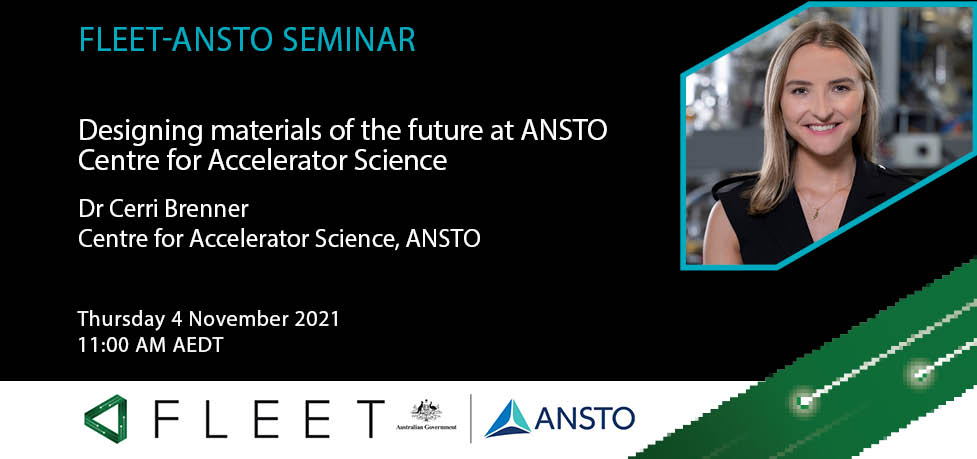-
4 Nov 2021
11:00 am - 12:00 pm
How ion beam accelerator applications at ANSTOs Centre for Accelerator Science helps researchers and industry design materials for future technologies, including radioisotope dating, isotope analysis, surface engineering and micron-resolution characterisation, rapid radiation exposure and damage capabilities.
Dr Ceri Brenner, Leader, Centre for Accelerator Science (CAS), ANSTO
Missed the seminar? Catch up on Youtube
Dr Brenner and CAS senior scientists, Dr Zeljko Pastuovic and Dr Armand Atanacio, will introduce the ANSTO Centre for Accelerator Science’s capabilities for advanced materials modification and characterisation.
“We’ll present examples where users have applied our precision ion implantation and irradiation beamlines for dopant and defect surface engineering in materials used for battery technologies and topological insulators for optoelectronics, for fabrication of nanomagnets and modification of 2D material membranes, for quantum sensing using nitrogen-vacancy centres in diamond and for studying hydrogen water splitting,” says Dr Brenner.
ANSTO’s Centre for Accelerator Science supports research and industry communities to explore the past, understand the present, and design for the future.
CAS is a user facility specialising in ion beam accelerator applications delivering world-leading sensitivity across a suite of radioisotope dating, element and actinide isotope analysis techniques, alongside surface engineering and characterisation with micron resolution, and rapid radiation exposure and damage capabilities.
CAS expertise and facilities support the full journey from idea through to impact, while providing a learning and training environment for the next generation of scientists and innovators. From environment modelling to space technology qualification, CAS has an impact on many research and innovation priority areas.
CAS is a member of the National Collaboration for Research Infrastructure Strategy network.
Dr Ceri Brenner was appointed head of ANSTO’s Centre for Accelerator Science, in February 2021. Dr Brenner is passionate about accelerator technology and its impact on science, discovery, and driving industry growth. Specifically, she is interested in the application of accelerator science in the design of next-generation healthcare technology, and in addressing grand societal challenges, such as environment and climate studies.
“I am motivated by the innovation journey – turning research into technology – and am passionate about applying physics for solutions that have societal, cultural, and economic impact,” she says.
Dr Armand Atanacio has significant experience using accelerator-based high energy (MeV) ion beam analysis techniques (PIXE, PIGE, PESA and RBS) as well as complimentary low energy (keV) SIMS technique on a wide range of specimens including: semiconductors, metals, polymers, ceramics, geological, archaeological and biological materials.
Dr Zeljko Pastuovic’s expertise is in Ion Beam Analysis (IBA) instrumentation, in particular (Heavy-) Ion Microprobe and; Ion beam interactions with matter, ion beam induced material modification and material characterisation with IBA techniques, in particular semiconductor materials and devices.


